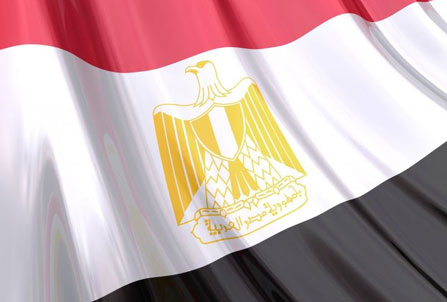Contents
1. Summary
2. Background
1. Summary
The Egyptian Military is working with the security forces and undercover police in arresting journalists, mistreating them and confiscating their ID cards, accreditation cards and cameras.
The government owned newspapers, TV channels and radio are convincing people that foreign media and journalists have their own agendas, inciting ordinary people against them. The Egyptian government is creating an atmosphere of fear for journalists and is putting obstacles in their work.
IHRC calls on the release of all detained journalists to ensure their safety and well being. Furthermore, IHRC calls on the Egyptian government to stop harassing all journalists in covering the current events with no prejudice.
2. Background
There have been reports of 140 cases of arrest and detention to of Journalists by the Egyptian military. Journalists from different independent newspapers have been attacked, arrested for many days and sometimes for hours for attempting to cover the incidents in Tahrir Square.
The government has cut internet, as well as other satellite TV channel’s coverage for several days since the revolution started. One of its aims was to isolate the Egyptian people from the world and force them to watch government news channels only. The government is attempting to stop the revolution and the protest by resorting to sending negative messages to the people through its media and restricting the work of other news agencies.
News websites for the Muslim Brotherhood have been repeatedly blocked by the government in order to prevent them from communicating with the youth and the outside media.
Five journalists from Al-Jazeera English have been arrested since 31st January 2011. The Minister of interior issued a decision to close the headquarters of Al-Jazeera offices in Cairo and confiscated the accreditation cards of the journalists. Egyptian journalists were falsely accused of being “traitors and spies” by thugs and plainclothes officials. Journalists and reporters from ARY News have been harassed by the authorities in an attempt to hamper their work.
Many journalists have reported that they were mistreated and intimidated by plainclothes officers. Two of the journalists who were detained also told the New York Times: “We felt powerless–uncertain about where and how long we would be held. But the worst part had nothing to do with our treatment. It was seeing–and in particular hearing through the walls of this dreadful facility–the abuse of Egyptians at the hands of their own government.” They added, “Many journalists shared this experience, and many were kept in worse conditions–some suffering from injuries as well.”
Human Rights activists and bloggers were also widely arrested and detained including activists from Amnesty International, Human Rights Watch and other human rights organizations.
Wael Ghoneim, Egyptian blogger and activist, was arrested since the beginning of the revolution and was only released recently. His family did not know his whereabouts for 12 days.
Journalists have carried out a symbolic funeral for the journalist Ahmed Mahmoud who was shot dead by the police officers while covering the protests. Journalists attempted to prevent the chief of the Journalist Syndicate, Makram Mohamed, from entering the headquarters of the Syndicate and called for his dismissal. Over a hundred signatures are being collected for a petition on the dismissal of Ahmed.
Yehia Alash told Ahram “When Egypt is anti-Mubarak and Makram caters to the regime’s solution and opposes the Egyptian revolution this makes us want him removed as part of the regime we are opposing. We don’t want him to speak on our behalf, we want him removed.” Other journalists were outraged at the fact that he did not take action when their colleague was shot dead.
IHRC urges the Egyptian government to cease from using such measures against journalists and immediately free them all. It also calls on allowing them to work without being discriminated and deliver factual and accurate information on what is happening in Egypt.
——————————————————————————————
For more information, please contact the office on the numbers or email below
——————————————————————————————
IHRC is an NGO in Special Consultative Status with the Economic and Social Council of the United Nations.
Please help IHRC by visiting https://www.ihrc.org.uk/catalog and making a donation or buying an item from our on-line store.
If you want to subscribe to the IHRC list please send an email to subscribe@ihrc.org
If you want to unsubscribe from the IHRC list please send an email from your subscribed email address to unsubscribe@ihrc.org
If you are reusing this alert, please cite the source.
For more information, please contact the office on the numbers or email below.
“And what reason have you that you should not fight in the way of Allah and of the weak among the men and the women and the children, (of) those who say: Our Lord! Cause us to go forth from this town, whose people are oppressors, and give us from Thee a guardian and give us from Thee a helper.”
Holy Qur’an: Chapter 4, Verse 75
Join the Struggle for Justice. Join IHRC.
Islamic Human Rights Commission
PO Box 598
Wembley
HA9 7XH
United Kingdom
Telephone (+44) 20 8904 4222
Fax (+44) 20 8904 5183
Email: info@ihrc.org
Web: www.ihrc.org







